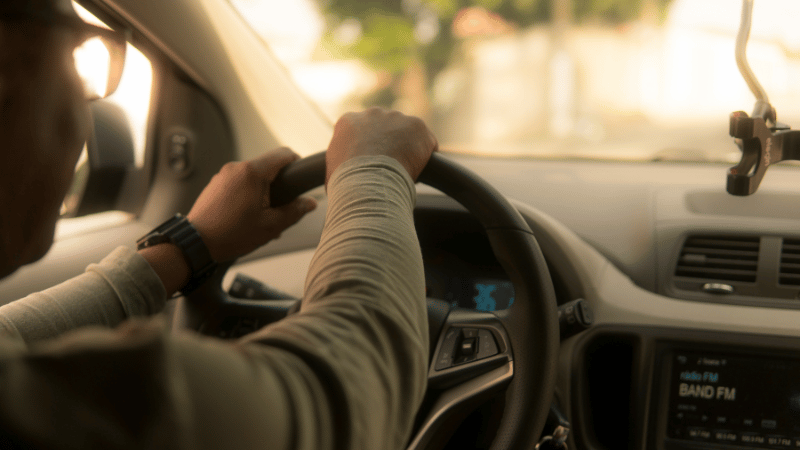Categories
Is PCP a Good Idea? An Honest Assessment
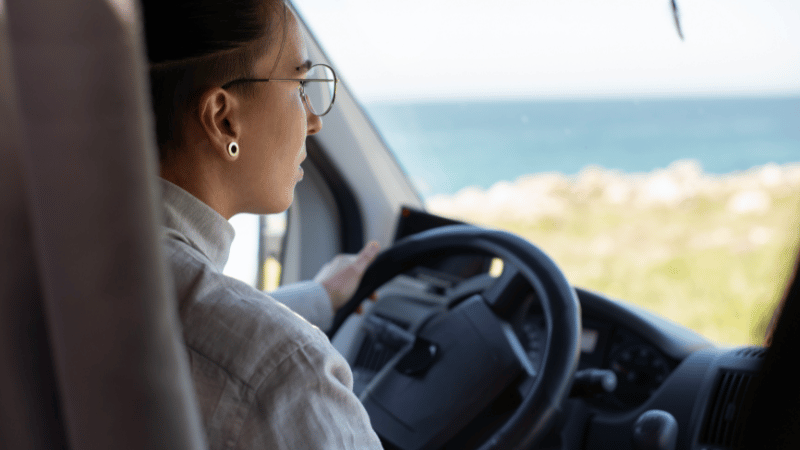
At Clifton Private Finance we deal with a wide range of funding options and, when it comes to car finance, PCP finance is one of the most common and - dare we say it? - beloved of all the choices.
So, why is PCP so enjoyed in the car finance world? What does it offer, and ultimately, is PCP a good idea?
Firstly, let's get straight to the crux of the answer:
Is PCP A Good Idea?
Yes, PCP is generally a good idea if you value flexibility, want lower monthly payments, and are interested in driving a new or newer car with minimal initial costs.
It’s particularly advantageous for those who appreciate having the option to own the car at the end of the contract or simply return it without additional commitments. And it can also be suitable if you prefer access to modern technology, better fuel efficiency, and lower running costs without the long-term maintenance worries of older vehicles.
On the other hand, PCP might not be a good idea if you prefer outright ownership from the start, as you don’t own the car during the contract and must pay a significant balloon payment to keep it.
It can also be restrictive due to mileage limits and strict contract terms, with penalties for exceeding them or returning the car in poor condition.
Additionally, while monthly payments are lower, the overall cost may be higher if you choose to purchase the car or if interest rates are unfavourable. For those with unpredictable finances, the inability to easily exit the agreement can also be a drawback.
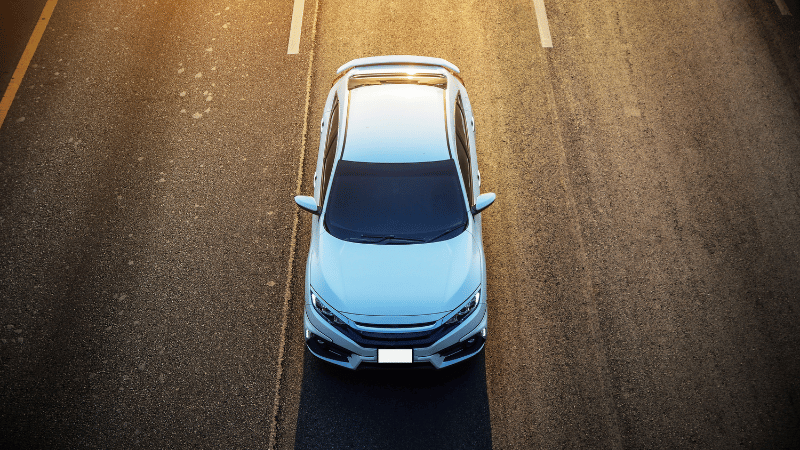
Contents
PCP - The Overview
First, it’s important to understand what PCP is.
The car finance term stands for Personal Contract Purchase and, if you look at the name itself, it seems like something you do to buy a car - and that’s true, you can.
However, not everyone goes on to actually buy the car, and there’s absolutely no obligation to do so.
PCP therefore, sits in a strange place somewhere between 'finance to buy a car' and a long-term car rental scheme. It’s really the best of both worlds, with flexibility and low monthly payments.
Ten key things to know about PCP are:
- You pay monthly - Like most car finance options, PCP requires a monthly payment. This is typically a few hundred pounds (though some flashy and expensive cars can reach into the thousands). Expect to pay around £400 a month for a standard family car.
- You can get a new car, or an old one - PCP is a flexible option. It’s most often used to get your hands on a new car you wouldn’t otherwise be able to afford, but it can be used to purchase used cars too. So, if there’s something you’ve seen at a local dealership that you’d like to finance with PCP, chances are you can.
- Nearly everyone is offering PCP - This means that it’s pretty easy to obtain, but also that it pays to shop around and get a better deal. You don’t have to just accept the dealership PCP option. At Clifton Private Finance, we have a team of car finance experts who can work with you to find the best PCP deal, so if you’re thinking of using this type of car finance, give us a call before you sign!
- PCP is quite forgiving on your credit rating - Because PCP is secured by the car you’re buying, lenders are willing to offer it even to people with poorer credit ratings. In fact, its one of the best finance options for those who might struggle to get a personal loan or hire purchase agreement.
- PCP contracts are strict - A downside of PCP is that once you’ve signed up for the term, you’re pretty much stuck with it. You can get out early, called a voluntary termination, but the fees for that can get expensive, so take care!
- You can get a car with no deposit - Part of the flexibility of PCP deals is that you can often find a finance provider who will let you get your car with no large initial payment (or deposit). Great for those without any savings in the bank to put towards the car.
- You can buy the car… or not! - At the end of a PCP contract you have the choice to either pay a pre-arranged sum (known as the balloon payment) to keep the car forever, or simply hand it back at no extra cost. This flexibility is one of the biggest draws of PCP for many people.
- You don’t own the car - Throughout the contract term, the finance company owns the car. This is their security and means that if you fail to make repayments they can repossess the car.
- There will be some limitations - As you don’t own the car, there will be terms and conditions you have to meet. This typically just means you have to keep the car in good condition and not go over any set mileage limit - doing either will incur fees at the end of the term. If you do find yourself doing more miles, you can always contact the finance company and alter the contract accordingly, though (or suck up the fee!).
- You still have to insure and maintain the car - Insurance is not included with PCP and neither are maintenance contracts in most circumstances (some dealers may offer additional maintenance deals). It’s your responsibility to keep the car on the road and make sure you’re legally able to drive it.
When is PCP Car Finance a Good Idea? 4 Examples
OK, so you have some idea what PCP is - but is it a good idea? Let’s have a look at some scenarios:
You want to drive a brand new car
One of the great things about PCP is it offers a path to getting a new car. The price of a new car is often out of reach for most people without the help of car finance in some form - most households don’t have £30,000 or more sitting around that they can use for a new car.
Having a brand new car has several advantages above the simple idea of driving around in something shiny. These include:
- Access to the latest technology - Cars improve technologically at a staggering rate. Drive a car that was made in the last year and compare it to one that’s ten years old and the difference is incredible. Latest technology means advanced safety systems, improved in-car controls, superior comfort, and much more. Of course, it also means access to the wide range of electric vehicles (EV) that are more environmentally responsible
. - Cheaper to run - It’s not just EVs that are cheaper to run. Traditional petrol vehicles and hybrid cars are also much more fuel-efficient than older cars. If you’re used to driving an older vehicle, you could find your running costs of a new car as much as 50% cheaper in real terms.
- Safer - New cars are safer than older ones. There are many reasons for this, from improved safety technology such as lane-keeping assist, to simply having better brakes. If safety is a concern, then a new car is a great idea.
- A superior drive - With better handling and stability, as well as all that technology, driving a newer car is a much more pleasant experience. You’re simply going to enjoy the experience more.
- Fewer maintenance worries - Anyone who has owned a car that’s more than a few years old knows the pain of maintenance. Whether it’s something relatively low cost, such as an MOT flagging up the need for new brakes, or a bigger concern, like a new clutch, old cars cost money just to stay on the road. A new car avoids many of these issues, with warranties that often last the whole PCP contract, and the fact that everything is new meaning the components aren’t likely to just need replacement due to wear. For the economy-conscious driver, a new car is a dream!
- Cheaper insurance - This one often comes as a surprise, but the chances are your insurance will drop if you go from an old car to a new one, even if the new one is worth a lot more money. That’s because you’re not really insuring your car, you’re insuring the change of you damaging someone else’s car. A new car, with all the safety features and tech we’ve mentioned, is less likely to be an accident. Insurance premiums are calculated on risk, and you’re less risky in a better, newer vehicle.
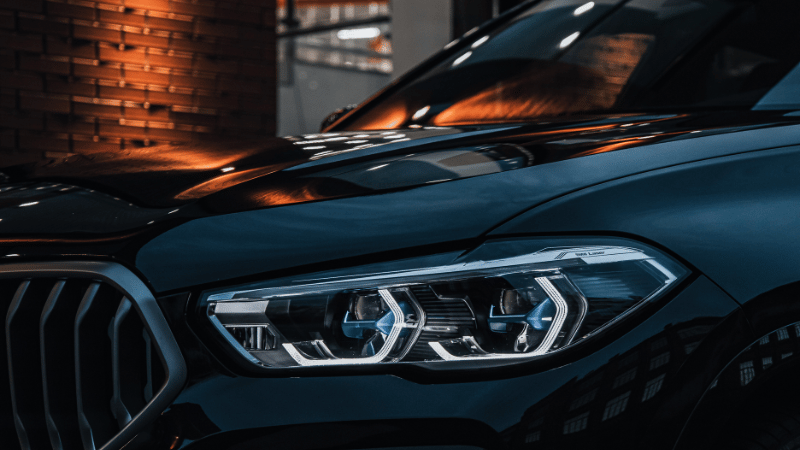
You want to save money
How can a PCP contract, with its interest and substantial monthly repayment, save money when compared to owning an older car outright?
For an example, let’s look at Sally. She bought a 2010 Ford Focus five-door hatchback outright a year ago for £6,995. Her insurance has worked out at £70 per month, she’s had to get new brakes put on it at a cost of £240, and she’s calculated that she’s paying between 17p and 18p in petrol for every mile; at 800 miles a month, that’s £140 in fuel. On the way home from work last week, her clutch failed, and she’s looking at a £600 bill to fix it.
She’s been offered £6,500 for the car, assuming she fixes the clutch. Doing some quick calculations, Sally works out that if she were to sell the car, her cost of running it for the year would have been: (6995 - 6500) cost of car, (70 x 12) insurance, (240 + 600) repairs, (140 x 12) fuel, (22 x 12) road tax:
£4,119 / 12 = £343.23 per month (including fuel, insurance, and tax)
She discovers a PCP deal for a brand new equivalent Focus hybrid for £275 per month. To see what it’s like to drive, she hires one for the day from a rental company for £45, and enjoys the ride immensely. She also tests the fuel consumption and cannot believe how the hybrid nature of the car drops the fuel consumption to an equivalent 12p per mile.
She looks online at insurance deals and finds she can get insurance down to £50 per month. Plus, in the first year at least, there’d be no road tax.
So, far from being a huge difference, the actual cost of a brand new car would amount to £77.77 more each month and for that, she’d get a new car with no repair worries and all the other advantages described above.
While it’s not directly cheaper than running an older car, the peace of mind plus the joy of the better ride is well worth the additional £78 to Sally, and she makes the arrangements immediately.
You want to spread the payments
PCP is one of several ways to spread the cost of buying a car, and it can be applied to used vehicles as well as new ones. When it comes to spreading the payments, PCP has two main competitors - hire purchase and an unsecured personal loan.
So how does it fare?
- Initial payment
Depending on your contract terms, PCP can be flexible enough to have no additional upfront payment. You still have to pay the first month, of course, but unless you want to optionally pay more to start with, most lenders will be happy for it to be no greater than a regularly monthly payment.
Compare this to hire purchase, where the deposit payment is often 10% of the total car value. On a £10,000 used vehicle, it’s often the difference between a couple of hundred quid and a full £1,000 to find.
Compared to unsecured personal loans though, PCP offers no advantage as unsecured loans also don’t require any sort of deposit.
- Interest rates
Both PCP and hire purchase agreements are secured loan types, using the car as a guarantee. A personal loan, on the other hand, is unsecured which means it’s more risky for the lender.
Unsecured loans will typically have a higher rate of interest than secured ones, making PCP a much better option for keeping the cost of interest down.
- Monthly costs
Your monthly outgoings are a major factor when taking out finance. Because PCP is designed to keep those costs low with its option-to-buy balloon payment, it’s significantly cheaper than both hire purchase and an unsecured personal loan each month.
- Credit checks and eligibility
PCP is developed as a flexible product for all. As the car secures the loan, lenders are far happier to be less stringent with credit history; specialist PCP deals exist for people with bad credit, making it possible to get a car even if you’ve had a run of difficult finances.
Of course, making the repayments is essential and you risk repossession if you fail to keep up with your commitments.
Compared to both unsecured loans and hire purchase, however, PCP’s credit check flexibility is a strong draw.
- Balloon payment and ownership
The flip side of all this flexibility and low payments is that both an unsecured personal loan and a hire purchase agreement are designed to purchase the car outright from the outset.
While PCP has ownership as an option, it does involve making a substantial balloon payment at the end of the contract.
There’s no obligation to make this payment, but if you want to own the car, you will need to make it (or refinance the agreement to cover a longer term). Here, PCP becomes a more expensive option than the other two.
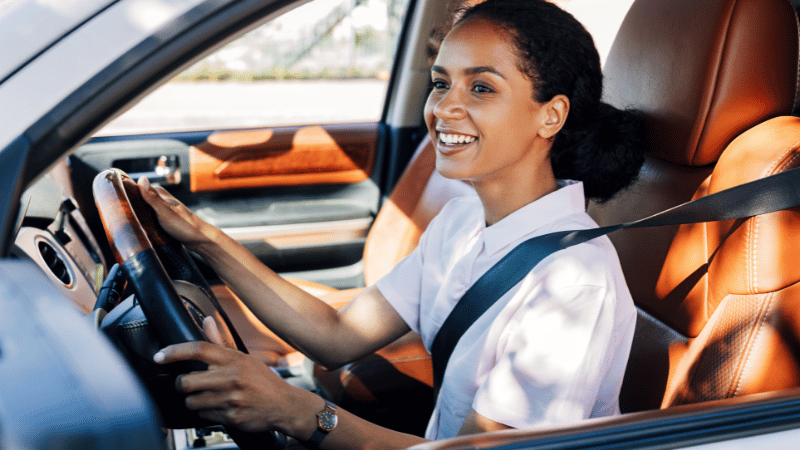
You want flexibility
One of the difficult things when purchasing a car is looking into the future. Honestly, unless you are a prophet or a dedicated and passionate expert in the car market, the chances are you won’t really know how you’ll feel about your car a few years down the line.
Will you be wanting to get rid of it and replace it with a new model? Will you intend to own it forever? Will you be moving to a city where car ownership is a hindrance? Will your family grow and change your car needs?
PCP offers unsurpassed flexibility in its option-to-own nature. You don’t have to make the choice regarding final ownership until the very end of the contract and, when that time comes, you can make your choice from several options:
- Pay the balloon payment and keep the car
- Give the car back and take out a new PCP agreement for a different model
- Extend the PCP agreement on the same car
- Look to other forms of car finance to make the balloon payment and keep the car
There’s even the potential to make extra money if the final car value exceeds the expected sum.
Apply Now with Clifton Private Finance
Without knowing your circumstances, it’s impossible for us to answer whether PCP is a good idea for you or not - the chances are good that it’s favourable, though.
Why not give us a call and speak to one of our car finance experts to discuss your specific situation? Our team at CPF have access to the wide marketplace of car finance options and can help you get the PCP contract that best suits you. Contact us today.
*Note: minimum loan size of £50,000 for individuals, and £25,000 for business purchases
